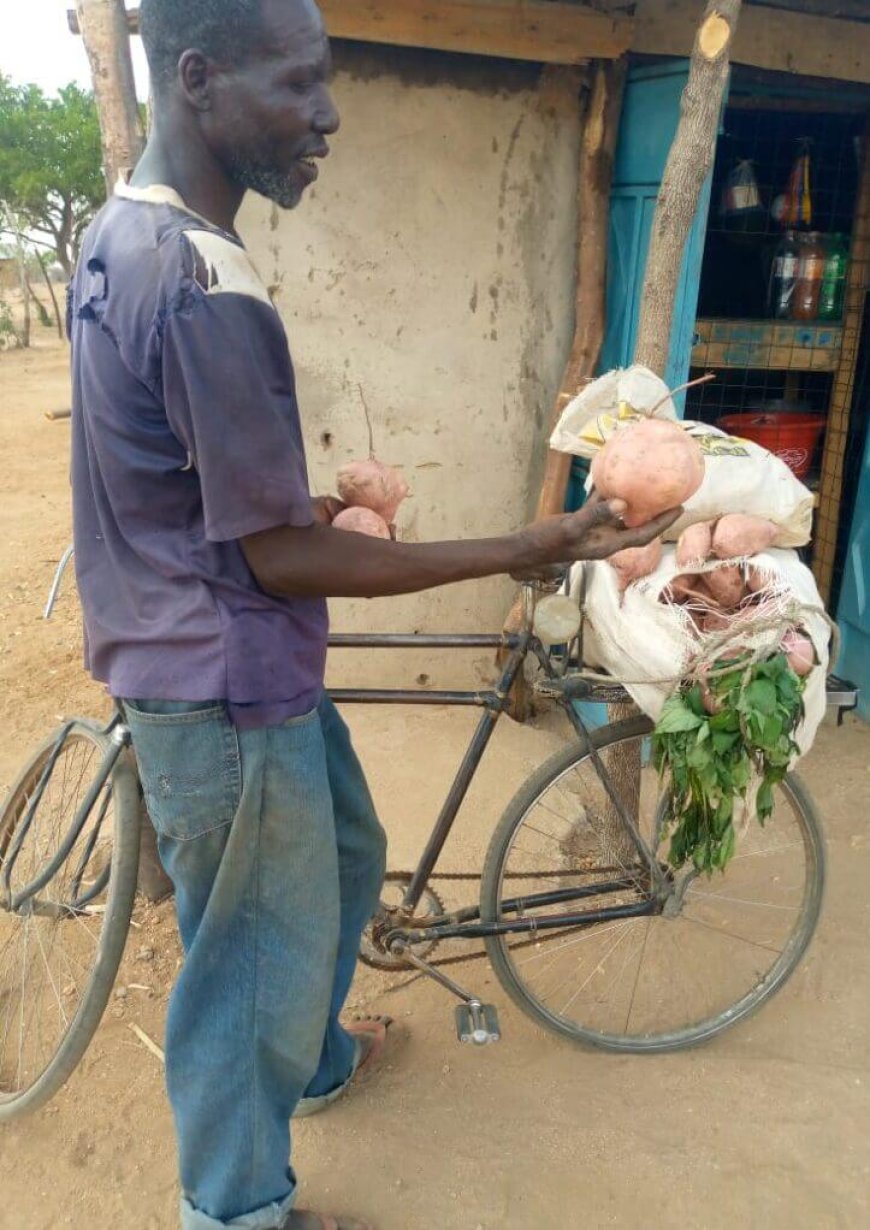Sweet potato farming changes fortunes for a Turkana farmer

Turkana Friday May 5,2023
K.N.A by Peter Gitonga
Turkana county, one of the Arid and Semi-Arid Lands (ASALs) is considered a food insecure county that is currently reeling from the effects of one of the worst droughts to have plagued the country in 40 years.
Aware of the impacts of climate change, state and non-state actors have recognized the importance of irrigation in promoting food security in the country.
In Turkana County, Bayer fund through the Improved Approach to Community-Based Nutrition in Turkana (IMPACT) Project has committed to reducing Global Acute Malnutrition and improving resilience against food-security-related shocks at the household level.
Hundreds of Turkwel and Katilu ward residents have benefited from the project. Patrick Juma, a father of four, is one of the beneficiaries is one of the beneficiaries who has embraced orange Fleshed Sweet Potatoes farming.
The resident of Kangirega, Katilu Ward in Turkana South Sub-County has become a role model to his villagers for his success in farming.
A victim of the Post-Election Violence in 2007, he had to relocate from Nakuru County to Kangirega and started selling charcoal to meet his daily needs and support his family.
About two years ago, Juma became a farmer under the PanAfricare IMPACT Project. He attended meetings where representatives of PanAfricare capacity built him and other farmers on good agricultural practices, village savings and loans association as well as the establishment of Water Users Association. The farmers are also provided with farm inputs, water, and seeds.
Currently, Juma is planting orange Fleshed Sweet Potatoes (OFSP), Cassava, Sorghum, millet, cowpeas and maize.
“I decided to farm so that I can get food for home consumption and to sell the surplus. I save the income from the sales in the groups that offer loans at the village level,” he says.
Unlike traditional sweet potato varieties, OFSP contains vitamin A, which is especially important to women’s and children’s health.
Selling OFSP is a profitable business. For two years now, Patrick has made a good enough income to improve his family’s nutritional needs and livelihood.
Courtesy K.N.A
What's Your Reaction?

































































































































































































































































































